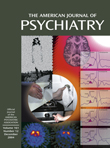Abstract
OBJECTIVE: Many terminally ill patients enroll in a hospice late in their illness, and recent data indicate decreasing lengths of hospice enrollment, yet we know little about the impact of hospice enrollment length on surviving caregivers. This is the first study the authors know of that examines the association between hospice enrollment length and subsequent major depressive disorder among surviving caregivers. METHOD: The authors conducted a prospective cohort study with 174 primary family caregivers of consecutively enrolled hospice patients with cancer between October 1999 and September 2001. Using data from in-person interviews at the time of enrollment and 6–8 months after the patient’s death, they estimated with logistic regression the adjusted risk of major depressive disorder with the Structured Clinical Interview for the DSM-IV axis I modules based on the number of days of hospice care before death. RESULTS: Caregivers of patients enrolled with hospice for 3 or fewer days were significantly more likely to have major depressive disorder at the follow-up interview than caregivers of those with longer hospice enrollment (24.1% versus 9.0%, respectively), adjusted for baseline major depressive disorder and other potential confounders. CONCLUSIONS: The findings identify a target group for whom bereavement services might be most needed. The authors also suggest that earlier hospice enrollment may help reduce the risk of major depressive disorder during the first 6–8 months of bereavement, which raises concerns about recent trends toward decreasing lengths of hospice enrollment before death.



